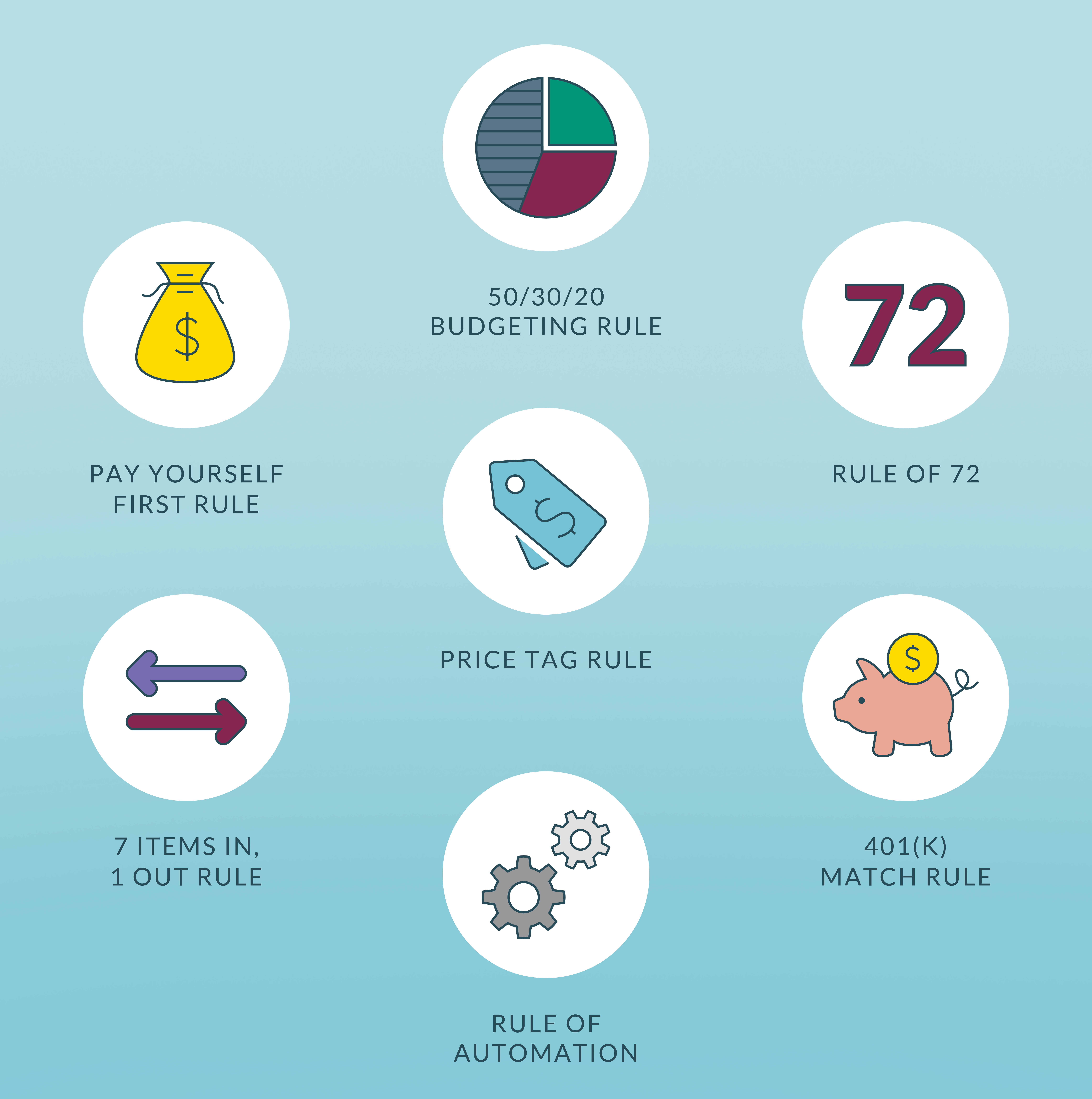SUMMARY
Explore proven financial rules that’ll help you manage your money better, reduce debt and achieve financial stability. From the 50/30/20 rule to the rule of 72, these tips will guide you to financial success.
Your Financial Life
5 minute read time
Explore proven financial rules that’ll help you manage your money better, reduce debt and achieve financial stability. From the 50/30/20 rule to the rule of 72, these tips will guide you to financial success.
Managing your finances can be smooth and rewarding when you have the right strategies in place. Here are seven effective financial tips to help you succeed:

The 50/30/20 rule is a simple and popular method for budgeting. It divides your income into three categories:
By following this rule, you ensure that you're covering your basic needs, enjoying life and saving for the future.
The Rule of 72 is a quick and easy way to estimate how long it will take for an investment to double in value. To use this rule, divide 72 by the annual rate of return. For example, if you have an investment with an annual return of 6%, it will take approximately 12 years to double (72 ÷ 6 = 12).
This rule is particularly useful for long-term financial planning and can help you make informed decisions about where to invest your money.
If your employer offers a 401(k) match, it's a no-brainer to take advantage of it. The 401(k) match is essentially free money your employer contributes to your retirement account, matching a certain percentage of your contributions.
For example, if your employer matches 50% of your contributions up to 6% of your salary, you should aim to contribute at least 6% of your salary to maximize the match. This can significantly boost your retirement savings over time.
Automation is a powerful tool for managing your finances. By setting up automatic transfers to your savings and investment accounts, you can ensure that you're consistently saving and investing without having to think about it.
For example, you can set up automatic transfers to your savings account each month either through MyJFG or by meeting with your banker to set up a transfer. This makes it easier to stick to your budget and build your savings over time.
The Price Tag Rule is a simple way to evaluate whether a purchase is worth it. Before buying a non-essential item, estimate its price without looking at the tag. If the actual price is equal to or lower than your estimate, go ahead and buy it. If it's higher, leave the item behind. This rule encourages more thoughtful spending and helps you prioritize purchases based on its true value.
The 7 Items In, 1 Out Rule is a strategy for both reducing clutter and minimizing spending. For every seven new items you bring into your home, you should sell, donate or get rid of one old item. This rule helps you maintain a balance and avoid accumulating too much stuff.
While this rule is primarily about physical items, you can apply this rule to your digital life, too. For every seven new apps or subscriptions you sign up for, consider canceling one you no longer use.
The Pay Yourself First Rule is a fundamental principle in personal finance. It means you should treat your savings as a priority and pay yourself before you pay anyone else. This involves setting aside a portion of your income for savings and investments as soon as you receive your paycheck.
For example, if you decide to save 10% of your income, you should transfer that amount to your savings account immediately after receiving your paycheck. This ensures you're consistently building your savings and helps you reduce spending on non-essential items.
By implementing these seven financial rules, you can take control of your money, make informed decisions and work towards your long-term financial goals. For personalized advice for achieving your financial goals, connect with an advisor.